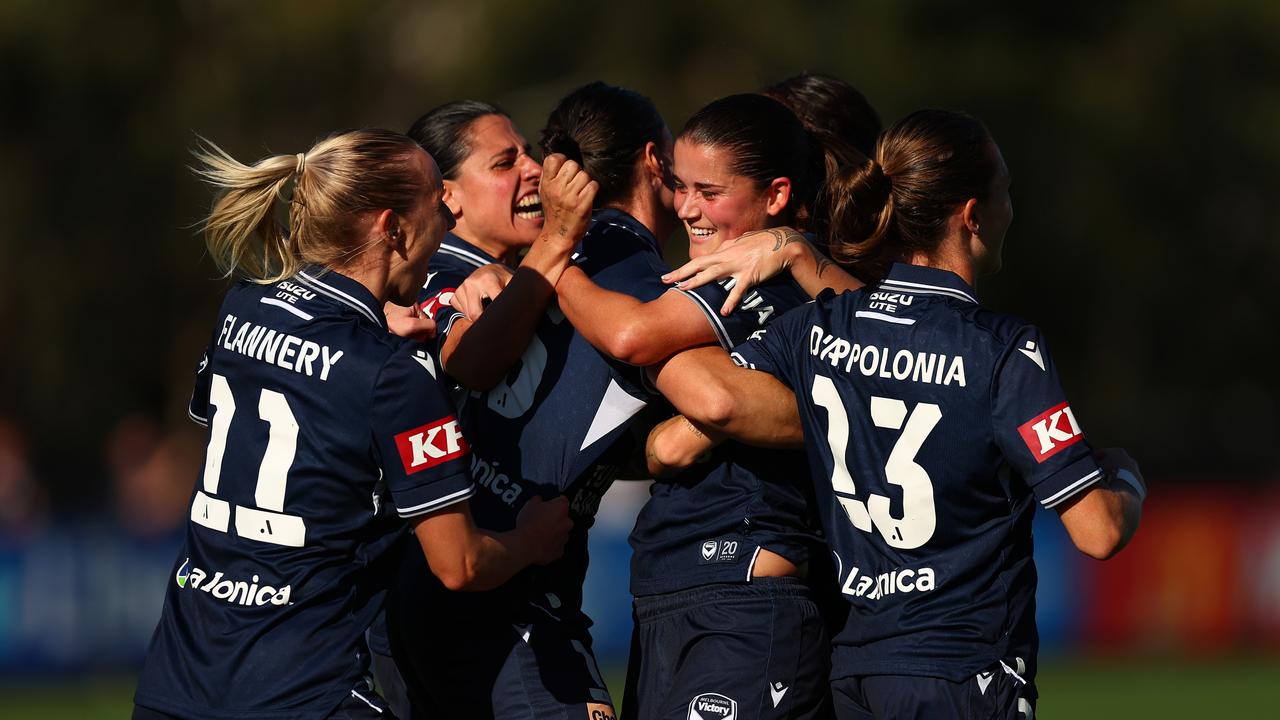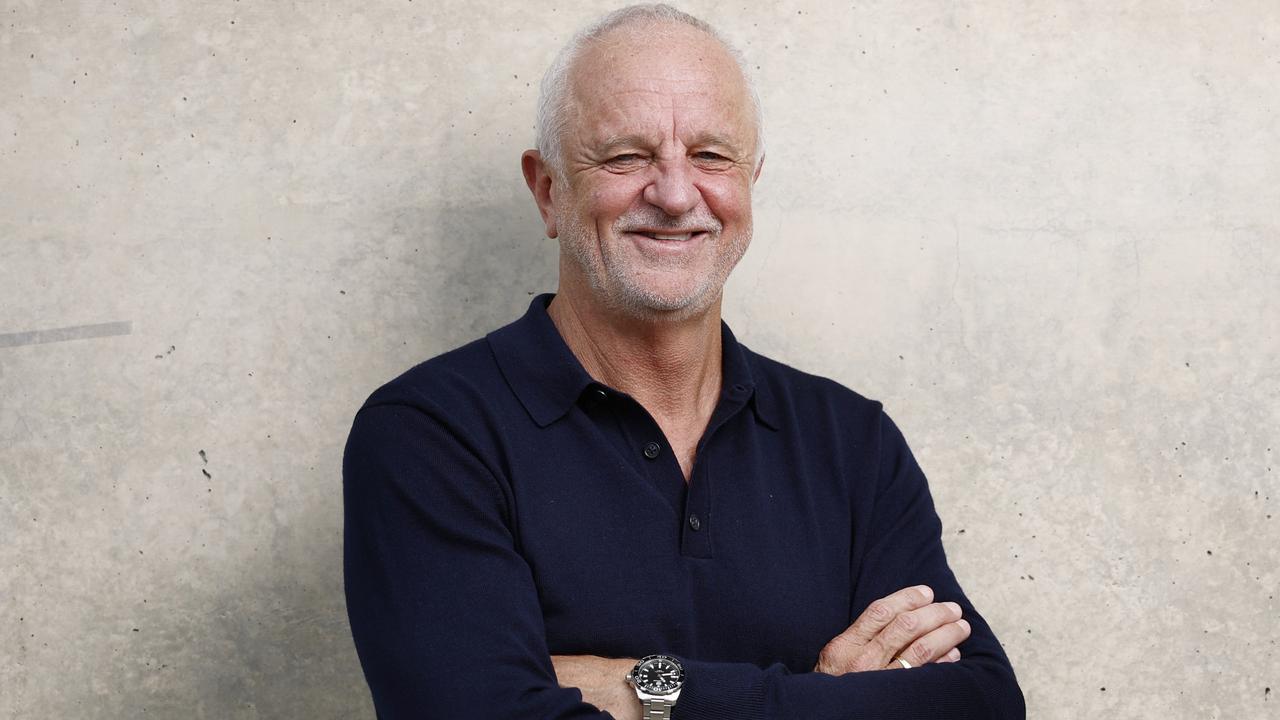Super League debacle: Inside story of the moment media officers found out
A meeting that preceded a “tsunami of s---” and two days of chaos that changed football forever. This is how the Super League almost came to be.

Football
Don't miss out on the headlines from Football. Followed categories will be added to My News.
At a Zoom meeting on Friday the media officers from six Premier League clubs were stunned at what they were being told.
Katie Perrior, a former Downing Street spin doctor, and Richard Conway, a former BBC journalist turned sports PR specialist, informed them that negotiations for a European Super League (ESL) were at an advanced stage and their teams were to be its founding members. “We knew we were in for a tsunami of shit,” said one of the media officers.
■ LATEST: Two clubs left standing in Super League debacle
Another said: “The fact that there was no CEO and no spokesperson was a concern. Not only that, the actual strategy wasn’t very sophisticated. It was basically, ‘It’s going to be a rough ride but we have to hold firm.’ Basically there was no comms strategy.”
On the same day, Manchester City and Chelsea, who were wavering, were given an ultimatum: sign up now or you will miss the train, and there will be no getting back on. Reluctantly, they agreed, pushed in the end by the fear of handing clout to their fiercest rivals, Manchester United and Liverpool.
Perrior, a former adviser to Theresa May and Boris Johnson, founded the PR firm InHouse and it was selected by the ESL to handle communications in anticipation of a huge political fallout.
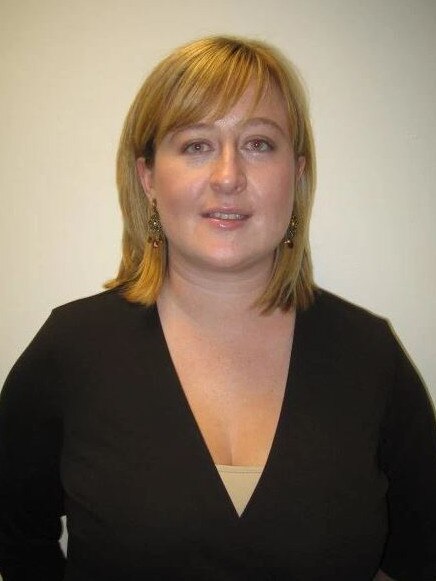

By Sunday morning news was spreading fast. Mark Bullingham, chief executive of the FA, made contact with a government minister and asked to speak to the prime minister as soon as possible. The Premier League board held an emergency meeting in tandem with other European leagues.
Just after 1pm The Times broke the story that six of England’s Premier League clubs had signed up to the ESL.
The Premier League prepared a strongly worded letter from the chief executive, Richard Masters, to be sent to all 20 of its clubs, calling on the rebels to abort their plans to join the breakaway league immediately. A statement was issued on Sunday afternoon.
Nothing from the ESL was released until late that night and even then the clubs involved did not, as usual, put the announcement on their social media feeds. By Monday opposition had become strong and universal.
Players at the six English clubs were already deeply concerned. Chelsea’s chairman, Bruce Buck, held a meeting with their squad. A similar meeting happened between Manchester United’s stars and Ed Woodward, the executive vice-chairman and one of the main co-conspirators behind the ESL.
United’s players expressed their dismay with Woodward and stressed that they did not like the sound of a closed league - the 15 founding clubs could not be relegated whatever their performance. Chelsea’s players were alarmed by the threats from Uefa and Fifa that anyone participating would be banned from international football.
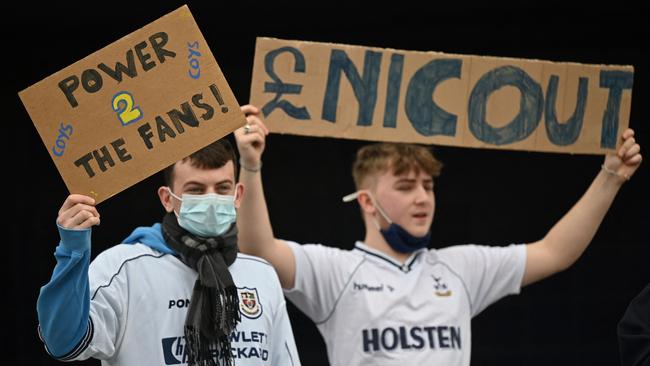
Senior figures at the six English clubs were stunned by the ferocity of the response in the media, from fan groups and especially from the government.
When the Duke of Cambridge joined the opposition, anxiety started to spread among the rebels. By Monday night, sources said, at least two clubs were having serious misgivings.
Conversations between executives at the six clubs started to pass to colleagues at the 14 excluded ones – as well as contacts at Uefa, the FA and the Premier League – showing that the owners and senior figures behind the breakaway were stunned by the response. It was said that they underestimated the depth of feeling and the anger they had provoked.
The Times received a call shortly after 9.30am on Tuesday to say that Manchester City and Chelsea were “wobbling”. This appeared to be known among senior figures at the Premier League, the FA and Uefa.
At Liverpool the players called a meeting, following comments made on Sky by their manager, Jurgen Klopp, and the midfielder James Milner, the previous evening and agreed that they were united in opposition against the plan. It was agreed then that players, most notably the captain, Jordan Henderson, would support Milner in voicing their opposition to the Super League on social media.
By this time the 12 Super League clubs who had been named had called an emergency meeting, which started on Tuesday afternoon and lasted for hours.
Watch Every Match of The 2020/21 A-League Season Live & On-Demand on Kayo. New to Kayo? Try 14-Days Free Now >
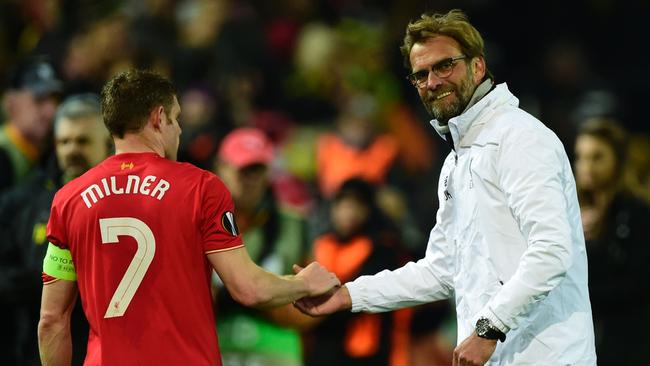
The English clubs expressed their concerns but were reminded of the threat of litigation if they broke a legal agreement committing them to the group for the next three or four years. Separate to that, there was also a 23-year commitment to the competition. Separate meetings were taking place within the respective clubs.
All the while, the attack on their plans continued, with Johnson telling football officials and fan groups it was time to drop a “legislative bomb” to not only stop the breakaway but ensure it never happened again. The six clubs were stunned by the speed and force of the prime minister’s reaction.
At Chelsea and Manchester City a sense of panic was developing. What good work they had achieved was about to be undone by a huge PR disaster.
During an emergency meeting of the 14 excluded clubs, Brighton and Hove Albion’s chief executive, Paul Barber, revealed that he had spoken that day to Daniel Levy, chairman of Tottenham. Barber had worked at Spurs as their commercial director and been a senior figure at the FA.
Barber said that Levy, normally unshakable, was seriously rattled by the reaction, not least from his club’s own fans. The clubs, meanwhile, called for individual sanctions against Woodward and the other main architects of the Super League.
City had been shaken by the news that hundreds of fans had returned their memberships on the back of supporters groups across the “big six” issuing statements. Of further concern to Chelsea was the sight of fans demonstrating outside Stamford Bridge before their game against Brighton. The scene turned ugly until the fans learnt of the club’s decision to quit the ESL.
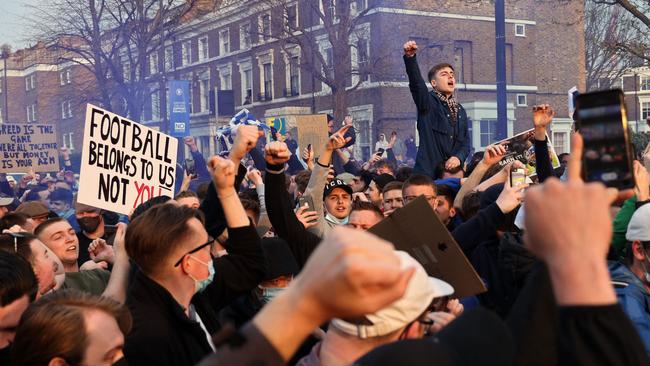
The news broke via the media at about 6pm. A decision, it is understood, was taken to pull out while the meeting of the 12 Super League clubs continued.
Concerns about possible legal action meant there was no official statement, but within minutes Manchester City announced they were out.
This got praise from Uefa and the FA in the form of public statements, and was followed by news, about 7.45pm, that Woodward had resigned.
Woodward was taken aback by the outrage and felt that his position was untenable. An official release from United, with a statement from Woodward that did not mention the ESL, landed at 9.20pm.
By then the other four English clubs had agreed that they too would officially withdraw from the breakaway group.
Only Arsenal issued any form of apology, although Liverpool’s co-owner John W Henry delivered a personal apology in a video and Joel Glazer, co-chairman of United, apologised later.
‘BIG SIX’ POWER DWINDLES
The power of the “big six” clubs over the Premier League has been severely weakened after the humiliating collapse of the breakaway European Super League.
Richard Masters, the Premier League chief executive, has written to senior executives from the six rebel clubs, including Ed Woodward, Manchester United’s outgoing executive vice-chairman, and Bruce Buck, the Chelsea chairman, informing them that they have the option of resigning their positions on various league working groups or face being voted out.
As a result of listening to you and the wider football community over recent days we are withdrawing from the proposed Super League.
— Arsenal (@Arsenal) April 20, 2021
We made a mistake, and we apologise for it.
Fuelled by what the 14 excluded clubs regard as a betrayal of trust, the league has asked Buck – who has been an important Premier League power-broker – to step down from the league’s audit and remuneration committee. Vinai Venkatesham, the Arsenal chief executive, and Manchester City’s Ferran Soriano have been told to resign from the club strategic advisory group, while Woodward and Tom Werner, the Liverpool chairman, will leave the broadcast advisory group.
Masters and his predecessor, Richard Scudamore, have faced a battle in recent seasons to keep the power of the “big six” clubs – United, City, Chelsea, Liverpool, Arsenal and Tottenham Hotspur – in check, but the failure of the Super League has led to a remarkable shift in power.
The Premier League is also understood to have resolved to shelve any plans for league changes benefiting the “big six” that might have been recommended by a strategic review.
The review was launched in October as a way of responding to demands by the big six for a greater share of broadcast revenue but now any radical proposals that would boost the biggest clubs appear set to have been kicked into the long grass.
John W Henry's message to Liverpool supporters. pic.twitter.com/pHW3RbOcKu
— Liverpool FC (@LFC) April 21, 2021
In a separate development, The Times understands that Uefa is considering scrapping its plan to award two Champions League places based on historical performances, in a further curb on the power of Europe’s elite clubs. Uefa feels a deep sense of gratitude to English football for leading efforts to see off the Super League this week and yesterday sent the Football Association a letter of thanks. It praised the collective power of the English “football family” in applying so much pressure that the league was abandoned less than 48 hours after being launched.
Uefa was impressed by the manner in which English football supporters united with the government and the media as well as the FA and the Premier League in opposing the controversial competition.
Mark Bullingham, the FA’s chief executive, contacted senior government figures on Sunday morning and played a vital role in getting Boris Johnson to engage with the crisis.
Efforts were so effective that the plan was scrapped and Woodward decided to resign from his pounds 3 million-a-year role at United at the end of the year. The Times understands that he deeply regrets not voicing the reservations he had about the Super League during talks with other plotting clubs.
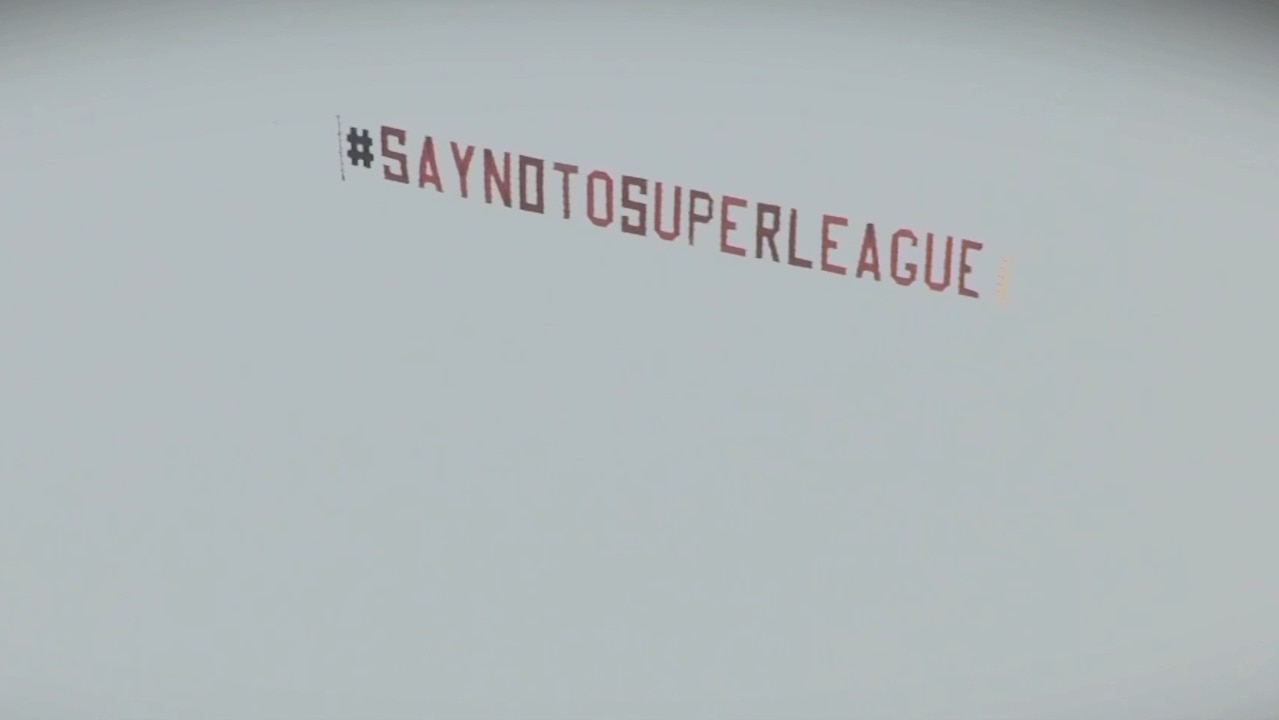
Uefa’s willingness to make changes to the Champions League plan for 2024 includes the possibility of a mini- tournament for the final four clubs in the competition. Some Uefa figures would back a move to include more national champions in an expanded 36-team competition rather than the blueprint that was agreed on Monday, under which two of the spots would be reserved for the clubs with the highest coefficient who had not already qualified via their domestic competition.
If such a system had been in place last season it would have meant Arsenal and Tottenham, who were eighth and sixth in the Premier League respectively, qualifying for the Champions League ahead of fifth-placed Leicester City.
Lars Christer-Olsson, the outgoing president of the European Leagues, said before his final board meeting: “There are still open questions concerning access to the competition based on coefficients.”
One European Club Association board member said there was a strong feeling that the extra guaranteed places should be given to the likes of Celtic, Rangers and Ajax for winning their respective leagues rather than handed to the elite clubs based on historical performances over the previous five years.
Atletico Madrid and Inter Milan announced they had decided to drop out of the Super League yesterday before the Juventus president Andrea Agnelli, one of the architects of the plan, called time on the project.
Agnelli blamed the involvement of politicians for the league’s downfall and claimed other clubs had been ready to join the breakaway league before the English sides left.
“Maybe they lied, but I was contacted by a number of teams asking what they could do to join,” he said.
— These stories first appeared on The Times website
More Coverage
Originally published as Super League debacle: Inside story of the moment media officers found out



